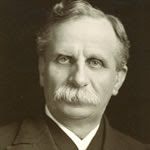 Philosophy of Religion by Norman Geisler and Winfried Corduan is a very helpful text providing a thorough treatment of philosophy of religion. The book is broken into four sections: 1) God and experience; 2) God and Reason; 3) God and Language; and 4) God and Evil. The authors write in a readable style and provide a good outline of thought throughout each section. The goal of the book is to give the reader a comprehensive overview of the rational, philosophical foundations of religious experience and they key issues that philosophy of religion addresses.
Philosophy of Religion by Norman Geisler and Winfried Corduan is a very helpful text providing a thorough treatment of philosophy of religion. The book is broken into four sections: 1) God and experience; 2) God and Reason; 3) God and Language; and 4) God and Evil. The authors write in a readable style and provide a good outline of thought throughout each section. The goal of the book is to give the reader a comprehensive overview of the rational, philosophical foundations of religious experience and they key issues that philosophy of religion addresses.In section one Geisler and Corduan explore the nature of religious experience and its connection with the idea of the Transcendent. They aim toward the goal of showing how one might test the reality of religious experiences: “There is no reason to doubt that people have religious experiences. What is subject to question is the basis in reality for such experiences.”1 Clearly, the goal of the authors is to not only explore the nature of religious experiences, but to define the criterion by which one may discern true experience from false experience, as well as outline the rational arguments and implications for true religious experience:
…the denial of the reality of the Transcendent entails the assertion that not only some people have been deceived about the reality of God but that indeed all religious persons who have ever lived have been completely deceived into believing there is a God when there really is not. For if even one religious person is right about the reality of the Transcendent, then there really is a Transcendent.2Section two delves into all of the classical arguments for the existence of God. This section alone could be worth the price of the book, as the authors lay out the full presentation and full critique of each argument in detail, from their weakest forms to their strongest. Geisler and Corduan are up-front with their own views on the validity (or lack of validity) of each argument, as they seek to show the strengths and weaknesses. It should be noted that the authors are looking for the ideal argument to be as unassailable as possible. They show the honest shortcomings of certain teleological arguments, the ontological argument, and weak areas of the cosmological arguments. This is not to say that the arguments have no usefulness; instead the authors provide their own reworking of the strongest possible arguments for God's existence.
Section three covers the traditional discussion of religious language: how do we define God and how can we speak meaningfully of Him? How is religious language used? Equivocal, univocal, and analogical language are all thoroughly outlined, as well as positive and negative religious language.
The authors conclude with an extremely thorough treatment of the problem of evil. This is divided into four sections. First, they define the problem of evil in its various and strongest forms. Next, the metaphysical problem of evil is discussed. Third, the moral problem of evil is covered. And finally, the physical problem of evil is addressed. This multi-faceted approach gives proper appreciation to the various aspects of the issue and provides a final, plausible answer to the problem of evil based upon the previous content. For those looking for a solid source for working through the problem of evil, Geisler and Corduan present an excellent resource. Philosophy of Religion can be highly recommended, like other books by Geisler, as a standard text.
1 Norman Geisler and Winfried Corduan, Philosophy of Religion (Grand Rapids, MI: Baker Book House, 1998), p. 63.
2 Ibid., p. 76.















































